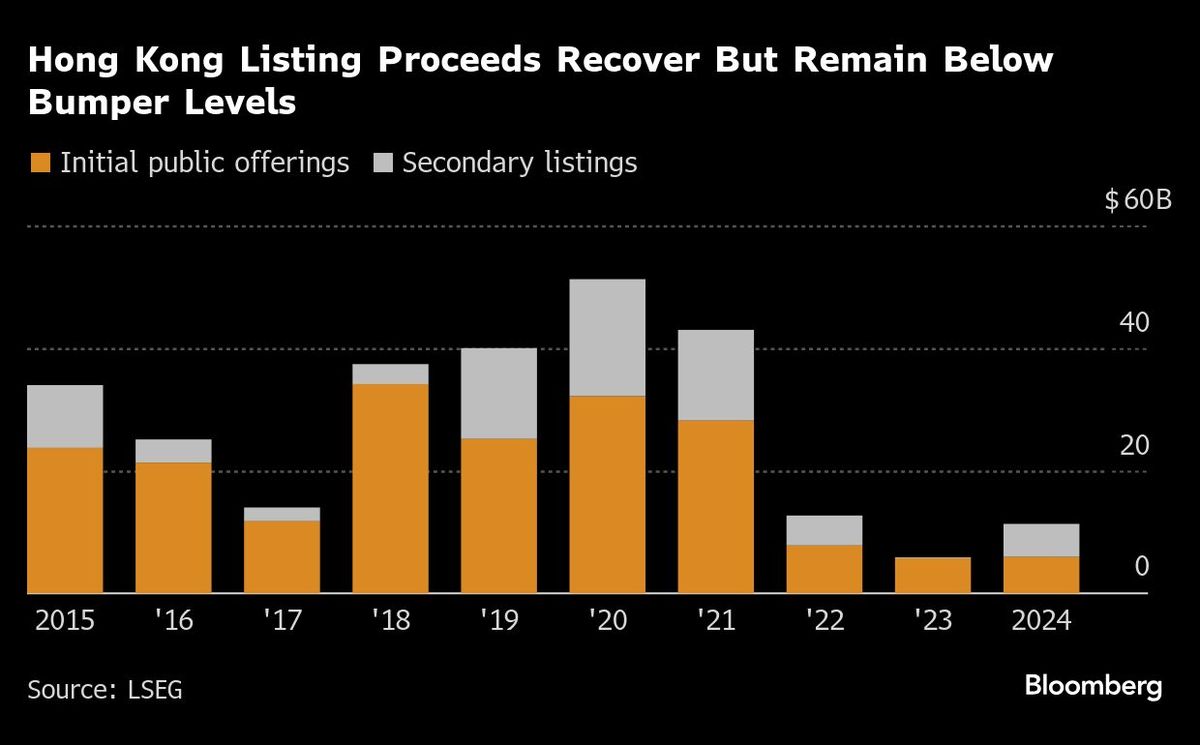
(Jan 28): Contemporary Amperex Technology Co Ltd’s upcoming jumbo listing, which could raise more than US$5 billion (RM21.97 billion), is the type of deal that can inject a much-needed adrenaline shot into a sputtering market like Hong Kong’s. But it’s fast becoming a headache for Wall Street banks.
That’s because the electric-car battery giant, commonly known as CATL, recently offered a mere 0.2% base underwriting fee to bankers, plus possible incentives, according to people familiar with the matter, who asked not to be identified because they weren’t authorised to speak publicly on the deal. That’s less than what others have paid recently for similar big listings and a far cry from the 1.2% that data provider LSEG said Chinese issuers typically paid for certain types of share sales such as second listings in the past decade.
For Wall Street banks — many of which have their Asia bases in the city — the worry is that rock-bottom fees become the norm, posing another problem in a market that’s been in a prolonged slump and increasingly dominated by Chinese underwriters. It’s also a sobering reminder of how deals in Hong Kong, and by extension China, have become less lucrative.
“The reality is quite tough for investment bankers from Wall Street banks as Asian clients don’t like to pay fees for their work if there’s not much value added,” said Veronique Lafon-Vinais, a former investment banker of more than two decades, who’s now teaching at Hong Kong University of Science and Technology’s business school. “It’s probably going to get worse, particularly for bankers at US and European firms, as competition from Chinese banks is increasing.”
Chinese banks have reason to get more aggressive to land deals in Hong Kong. Ever since the country’s securities regulator started restricting initial public offerings in the mainland in 2023 to stabilise the stock market, business opportunities for the country’s investment banks have dried up at home. That’s made overseas listings such as those in Hong Kong more important.
“Chinese banks have built up their expertise and relationships in recent decades and are now fighting like never before to grab market share from Wall Street firms,” Lafon-Vinais said.
Companies that already trade in mainland China typically pay less to add a listing in Hong Kong than in a first-time IPO. Shenzhen-listed CATL’s proposed fees still stand out. For example, appliance maker Midea Group Co, whose shares have already been traded in mainland China for years, paid 0.6% in fixed fees, plus up to 0.2% in incentives for its US$4.6 billion listing in September. CATL is offering the opposite — 0.2% fixed and up to about 0.6% in incentives — according to the people.
Bank of America Corp, China International Capital Corp, CSC Financial Co and JPMorgan Chase & Co are set to work with CATL on its listing, Bloomberg News has reported. CATL declined to comment.
Despite the low fees, Wall Street banks still pitched to get on the CATL deal to avoid missing out on what could be Hong Kong’s biggest stock offering this year, people familiar with the matter said. Big share sales often command low fees — as was the case with Alibaba Group Holding Ltd and Saudi Aramco in 2019.
What’s happening in Hong Kong has historical precedents in markets such as India, according to Philippe Espinasse, a former banker who’s authored books on Asian IPOs. “Competition among senior underwriters is increasing, in turn affecting the level of fees,” he said.
Still, the struggle in Hong Kong is a contrast to the picture globally, at least based on the recent financial results of Wall Street’s biggest banks. They posted increases in equity-underwriting revenue last quarter as the market for global IPOs saw a revival on the back of a resilient US economy.
For now, the hope is that in Hong Kong, the increase in deal flow makes up for some of the reduced cut that bankers get. IPO proceeds in the city may double to more than US$22 billion this year, thanks to major floats by China-listed firms and the possibility of US-listed Chinese firms seeking second listings on the back of rising geopolitical risks, according to Bloomberg Intelligence analyst Sharnie Wong.
Should the city’s exchange induct its 100 or so prospects, this could be its busiest year for such deals since at least 2021.
Uploaded by Arion Yeow
- Perak Sultan hails mosque, Hindu temple's inclusive aid for Putra Heights fire victims
- Malaysia to bear brunt of weaker exports to US, Macquarie flags
- U Mobile to roll out 5G network with Huawei, ZTE; sees 'similar' rates to DNB
- High Court doubles fine to RM10,000 for former UM student activist for insulting vice-chancellor
- China sees another ‘50 golden years’ with Malaysia, says Xi
- F&N says first batch of 2,500 Chilean dairy cattles has arrived in Gemas
- OpenAI is working on X-like social media platform — report
- Canada scraps tariffs for automakers that keep plants running
- Trump trade war sparks run on US warehouses with tariff loophole
- US banks flag risks to consumer spending from tariff policy uncertainties


